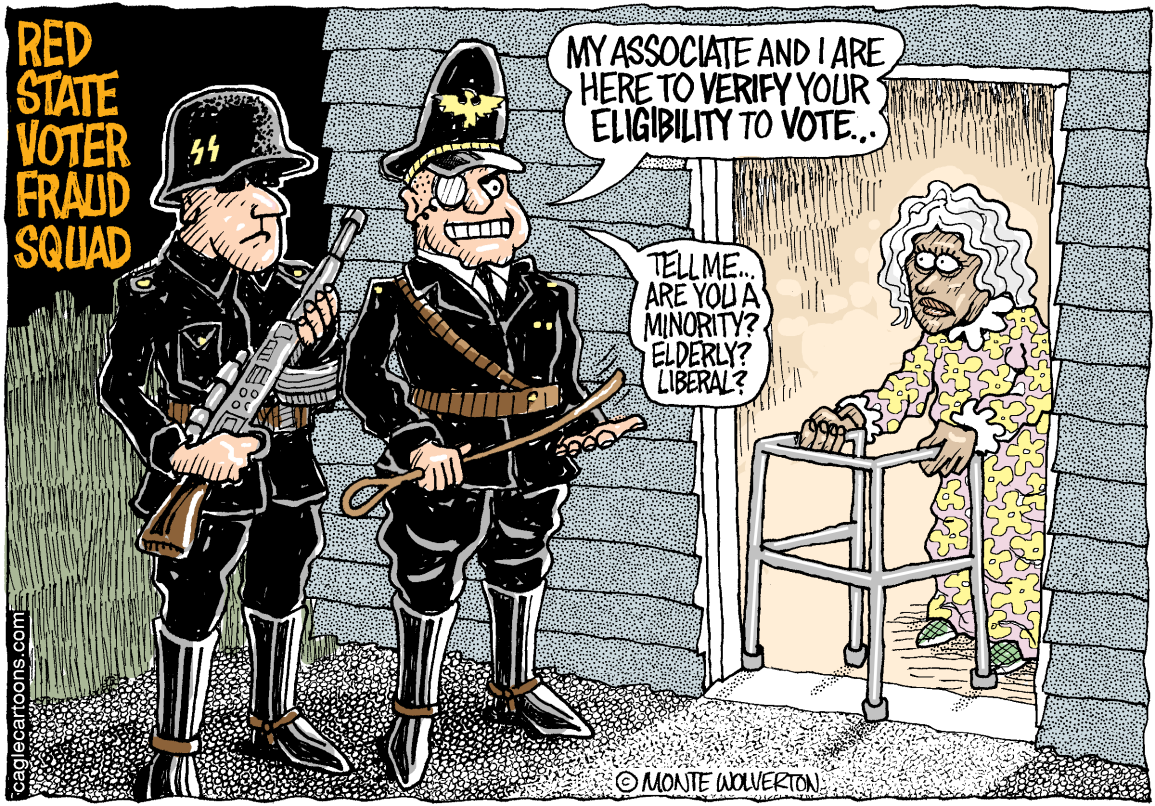
There have been just four documented cases of voter fraud in the 2016 election

Voters fill out their general-election ballots at a polling place in Bradfordton, Ill., on Election Day. (Seth Perlman/Associated Press)
Three weeks ago, the votes of more than 135 million Americans were counted, and Donald Trump was declared the winner of the 2016 presidential election. It was a surprising result, given that polling in the run-up to the election suggested that Hillary Clinton's support in the Midwest would ensure that she could hit 270 electoral votes. That support didn't exist when it came time to vote, and that was that.
It seemed very likely as Nov. 8 approached that Trump was poised to reject the result, regardless of which states fell into which candidate's column. For months, he'd been alleging that voter fraud was rampant and that his supporters needed to police the polls. Rather amazingly, he has picked up the same thread after the election, charging that Clinton won the popular vote (by 2.5 million votes and counting) solely because of fraudulent ballots.
There wasn't evidence of widespread voter fraud before the election. There isn't evidence of widespread voter fraud afterward, either. In fact, there's not evidence of even modest voter fraud.

We combed through the news-aggregation system Nexis to find demonstrated cases of absentee or in-person voter fraud — which is to say, examples of people getting caught casting a ballot that they shouldn't have cast — during this election. This excludes examples of voter registration fraud — the filing of fraudulent information. Those aren't votes cast — and given that organizations often provide incentives for employees to register as many people as possible, registration fraud cases (while still rare) are more common.
Here's what we found:
Cases of voter fraud
A woman in Iowa who voted twice. Terri Lynn Rote had the enormous misfortune of bad timing. Right as the candidate she supported, Trump, was drawing attention to fraud cases, Rote decided to try to vote twice in Des Moines, and got caught. The case made national headlines simply by virtue of the fact that it happened when it did, and that she voted for Trump.
For what it's worth, she suggested that the fault lay with Trump. “The polls are rigged,” she said to a local radio station by way of explaining her multiple votes, echoing another of Trump's complaints.
A man in Texas who voted twice. Phillip Cook was arrested on Election Day after voting twice. He claimed to be an employee of Trump's campaign who was testing the security of the electoral system. He wasn't an employee of the campaign — and the polling location's security worked perfectly well, it seems.

A woman who cast a ballot on behalf of her dead husband. Audrey Cook is a Republican election judge in Illinois. She and her husband applied for absentee ballots because he was ill. He died before completing his, so she filled it out for him and sent it in. The ballot will not be counted.
A woman in Florida who marked absentee ballots.Gladys Coego was hired to open absentee ballots in Miami-Dade County. One of her co-workers noticed that she was going a step further, filling in the bubble for a mayoral candidate with a pen she had in her purse. She was caught in the act and arrested. There's no evidence that she changed any presidential votes.


Possible cases of voter fraud
Two possible cases of fraud in Washington state.Investigators are looking at two possible cases of fraud near the Idaho border. In the first, a man may have signed his deceased wife's name on an absentee ballot; in the second, someone may have voted in both states. Charges have not been filed in either case.
A possible case in South Carolina. A man in the Palmetto State is being investigated on suspicion of voting both by absentee ballot and in person.
Ballots are being challenged in North Carolina.Because of the close gubernatorial race in North Carolina, several dozen ballots were challenged by Republicans as having been cast by convicted felons in the state. An independent group found that at least 18 of the 43 alleged cases of fraud were not fraud at all, instead confusing valid voters with people who were ineligible given their status. There's not yet any verification that the other ballots were from ineligible voters, either.
And that's the end of the list. We will happily add any other examples that people might offer, but note that we are looking only at voter fraud. That means that things such as the following don't count:
- Cases from prior elections.
- Vague allegations of fraud, even from people in positions of authority.
- Jokes.
- People involved in this campaign who were accused of fraud from previous contests.
- Possible iffiness in states where recounts are being initiated.
- And, again, voter registration fraud.
We're looking only for cases in which someone is shown or alleged to have cast a ballot he or she should not have.
We can anticipate one response in advance: The fraud isn't being detected! It's certainly possible that we're missing cases (as above) and it's certainly possible that some cases as yet have gone unnoticed. That would have had to have happened despite the checks that are already in place and which caught the people implicated above, mind you. And it would have had to have happened during an election cycle where more attention was paid to voter security than any other in recent history. Catching Clinton voters casting fraudulent ballots would be a huge coup, particularly now! (After all, Trump himself said that it was Democrats who commit fraud, not Republicans.) But that doesn't seem to be happening.
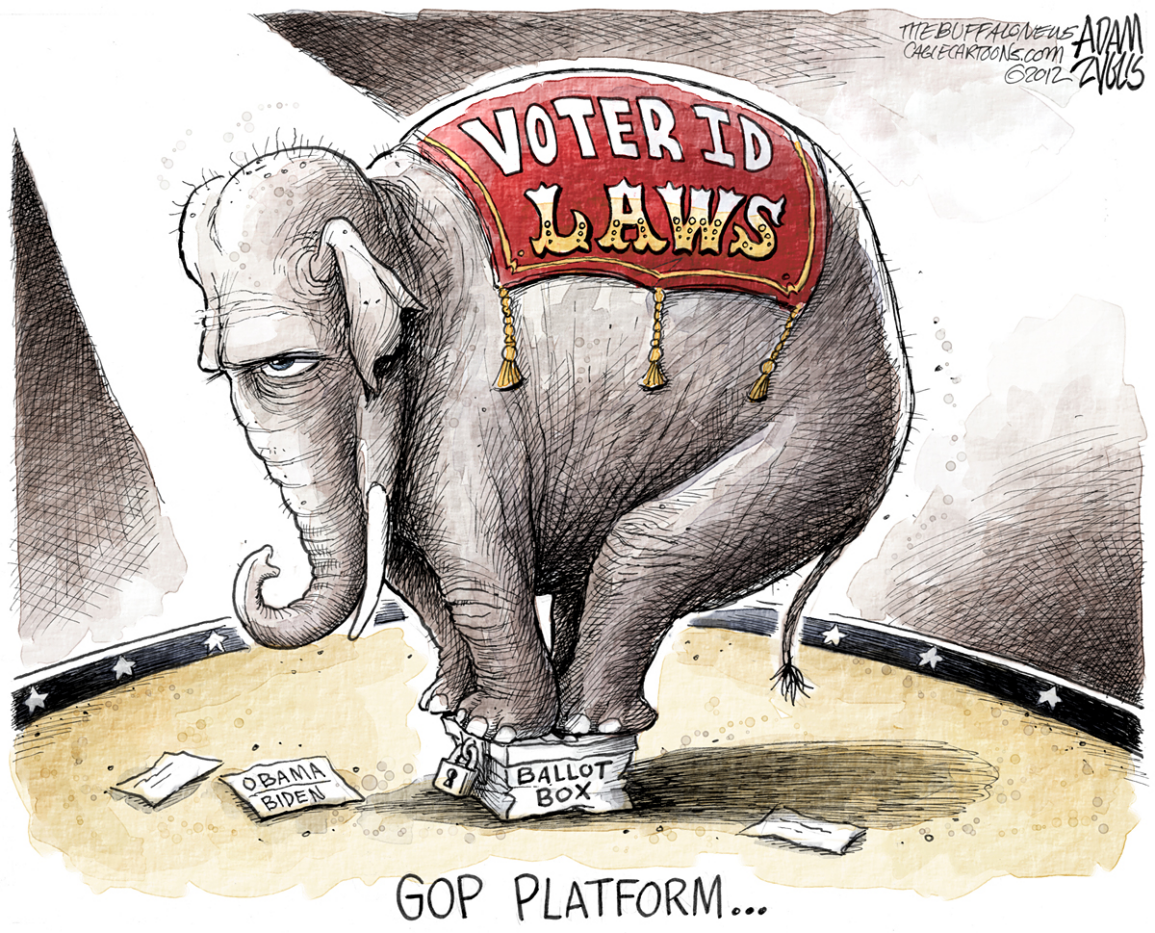
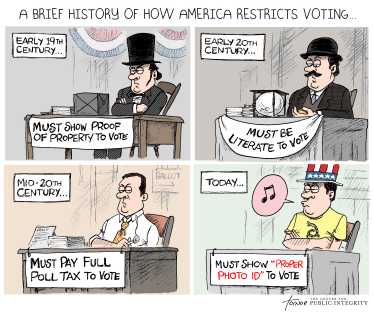
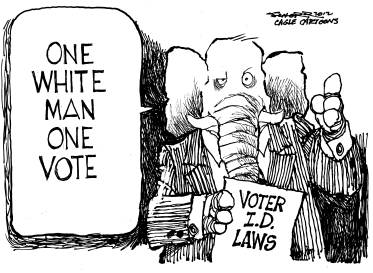

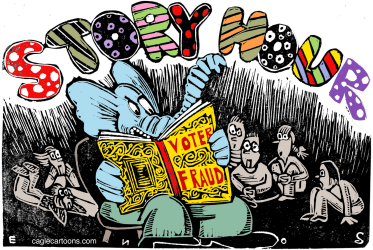





The burden, as we've noted before, is on those who say rampant fraud is occurring. I can claim that there's a burglary epidemic in my city that has gone unnoticed, but you would be justified in pointing out that no one is coming forward to say their houses were broken into. And if I point at a recent spike in sales of crowbars as evidence — voter registration fraud, in this analogy — you would be right to draw a distinction between that and my initial claim.
As of writing, there are four demonstrated examples of people committing voter fraud during the 2016 general election. That's 0.000002 percent of the ballots cast in the race for the White House — if they counted, which they won't. (And it's including the mayoral fraud in Florida.)
There is simply no evidence that fraudulent ballots played any significant role in the 2016 presidential election whatsoever.
77
